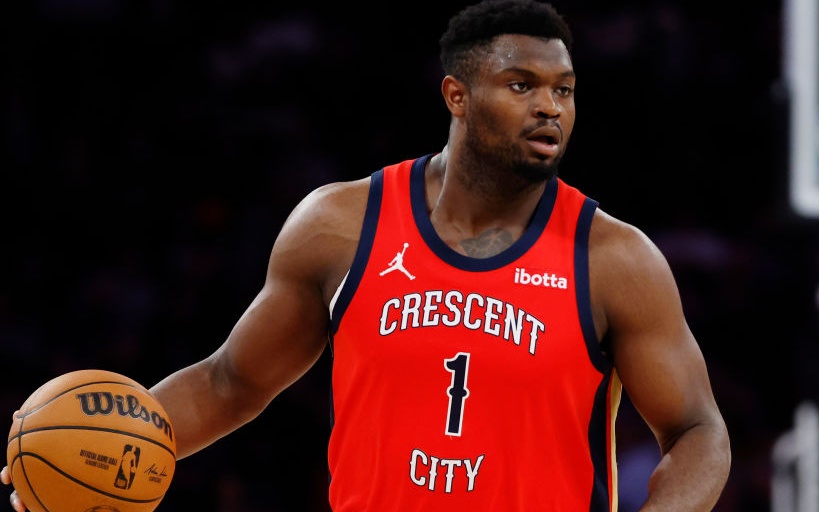As true sports lovers, we consume the content on every level. This spans from the games to analysis and debate shows. So player scrutiny or critique is often a focal. One of the more contemporary players who has been the subject of scrutiny in recent years is Zion Williamson. But he isn’t alone in the slightest. Let’s not forget Ben Simmons or Ja Morant, who are no strangers to player scrutiny in the media. But there are levels to this and as much as critiques are necessary, how we go about critiquing can make all of the difference.
Williamson’s weight and conditioning have been topics of scrutiny in the NBA since he came into the league in 2019. Playing at the power forward position, the sport colloquially calls those players “bigs.” Your power forward is typically one of the taller players on the team. A player’s weight at that position is always a topic of concern because of the impact weight has on your knees. And usually, “Bigs” with knee issues don’t truly reach their potential.
With Williamson’s play being so forceful, many sports pundits have cautioned the Pelicans star about his conditioning. That’s a fair point and critique. But lines do get crossed when analysts poke fun at weight issues. We’re in a different era now, and yes, it’s more sensitive. I get that analysts have a job to do, and part of it is to be entertaining. But it’s important to bear in mind the residual impact that can have on players’ psyches. All of them aren’t built the same. Whether we like it or not, it’s something that we have to accept.
What we should exhibit above all else while covering these athletes is discretion. Some issues that we come across involving them are delicate as well. There’s Morant’s conduct that was detrimental to the team, and Simmons’ alleged mental health issues for instance. In Morant’s case, the Grizzlies’ star’s street cred was constantly called into question. This was of course because of a position that he put himself in. However, there were efforts by many in the media to try and help him not to be mischaracterized in the media. He ran the risk of being labeled as a “thug,” and a menace with no self-control.
In Simmons’ case, his motor was always called into question. Did he want success in the NBA as badly as one with his talent should? His desire to put the work in has existed for much of his career. But that all began after he refused to make a layup attempt during the closing moments of a 76ers playoff game. It’s a decision that very well cost the team the whole series. From that moment forward he has been the butt of unlimited PTO jokes. Since that time he has been accused of feigning injury and he’s also been injured and skipped games due to mental health reasons. The way the media covered Simmons’ issues, while jocular at times, was also harsh. And that’s not to say that I didn’t agree with what was being said. But when creating for public consumption, there’s just a little more care that we may need to take in documenting these events.
So quips about how many burgers someone is eating in a condescending tone may not be the most prudent path to getting your point across. Again, albeit entertaining, it’s not always manifesting in these players heeding the words of these analysts. As much as these are adults who should be able to handle critiques, if we’re being honest, how they hear them is different from other vocations. Who knows what kind of writer I’d be if someone made fun of my style rather than constructively gave me direction, you know? I know the thought of all of this sounds so pacified, but it may be time for this sort of evolution. I’m sure there are ways to continue to make the content entertaining. But we just can’t let it get personal.

